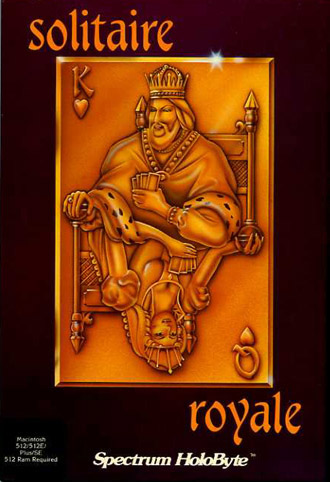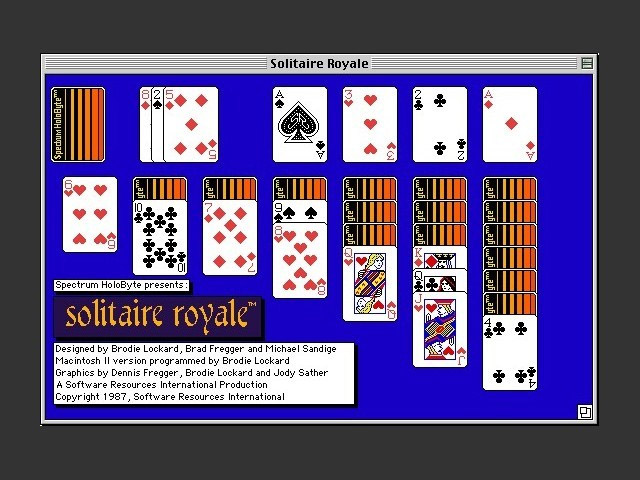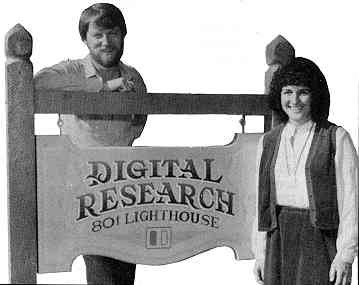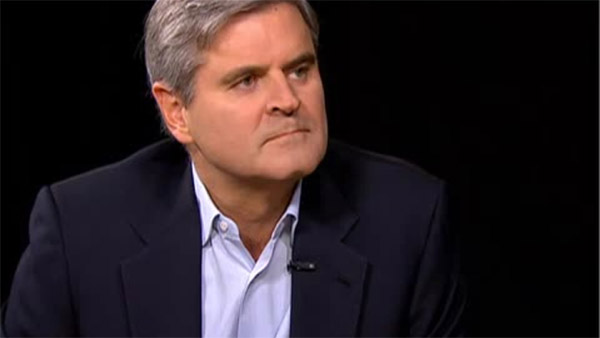 vvvvvv
vvvvvv
 vvvvvv
vvvvvv
This year is the 30th anniversary of the publication of Solitaire Royale the world's first computer card solitaire game. It is also a reminder of how you, Microsoft, and AS* screwed me royally and almost drove our company, Software Resources International, into bankruptcy. However, there is a saying, "If you plan on getting into bed with the devil, expect to get burned."

The director of Microsoft Games had recognized the power of the Klondike solitaire that you had included in Windows 3.0 (1990), "Every company we go into the people are playing Microsoft Solitaire. Brad, you're the computer card solitaire expert, we want you to do an outstanding card solitaire product we can market."
They had, of course, seen Solitaire Royale and knew we were the right developer to do their product. He asked me to begin work immediately, promising they would market the product and giving me a strong letter of intent. We agreed on the contract and he got your approval. I attended the Software Publishers Association meeting (in Seattle, at Microsoft, that year) fully expecting to sign the approved contracts; however, that was not to be.
It turns out you had replaced the Microsoft Games Director with AS*, an arrogant individual with little vision and, as it turned out, no ethical standards.
My sources told me that when he saw the approved solitaire contract he said, "Who the f**k wanted to do a card solitaire game. This is, obviously, one of the reasons I've taken over this division." He then tossed the contract into the round file and didn't even notify us that the approved contract had been canceled.
The results of this ignorant decision are as follows.
Bill, I had reached out to you to correct this unethical situation, reminding you that my aunt and uncle had been bridge partners of your parents when you were a small child, but, of course, I never heard back from you, either.
I might have sued you for breach of contract, holding that strong letter of intent, but I'd just come out of a major lawsuit with Epyx over Ishido and couldn't face up to going against Microsoft and your many high-paid lawyers.
I probably shouldn't have been surprised at AS*'s lack of ethics and vision. He learned that style of business from you.
While the evidence is only circumstantial, the probability is very high that you colluded with Seattle Computing to steal MSDOS, your "killer app" for the IBM Personal Computer, from Digital Research (DR).
IBM had come to you initially asking for a DOS for their new personal computer; they needed it very quickly. You told them you didn't have a DOS and suggested they contact DR in Pacific Grove, California as they had the only DOS for personal computers in the world.
The story of what happened when IBM showed up at DR is industry legend, Dr. Gary Kildall, co-owner of DR with his wife Dorothy, was out flying his plane and Dorothy took the meeting. IBM wanted a price break for DR's DOS but Dorothy was adamant that all of their customers pay the same price. IBM's request was very reasonable as they were probably going to sell millions of more units than any of DR's other customers. But, Dorothy, stubborn, refused to back down.

IBM left the meeting in anger and immediately went back to you begging for a DOS for their computer; it seems they needed it in about 30 days. It has been reported that you told them that you would see what you could do.
As you know both Microsoft and Seattle Computing were beta sites for DR's DOS, which meant that both of you had access to their code. What we know for a fact is that you arranged for Seattle Computing to deliver a DOS to you within 30 days and that you would pay them a flat fee of $50,000 with no additional royalty payments and that you would have complete control of the copyrights, this was the beginning of MS-DOS.
However there is strong circumstantial evidence that Seattle Computing, at your suggestion, ripped off DR, stealing DR's DOS and put a Microsoft copyright on the ripped code. IBM probably suspected that that's what happened, but they could care less, they needed a DOS and they weren't about to go back to Digital.
My sources told me that when Gary Kildall realized that Microsoft was licensing a potentially ripped copy of his code to IBM that he wanted to sue both Microsoft and IBM for copyright infringement but that his lawyers told him that the chances of winning the lawsuit were not good and that it would take all of his money and more to go up against IBM. They suggested that should just swallow this bitter pill and move on; go up against Microsoft in the marketplace.
I personally used both DRDOS and MSDOS as they ran the same programs, although I preferred DRDOS as it was a much better product. DR could fix any bugs that surfaced while you couldn't; you had no idea how the DOS was developed since you didn't develop it. At this time, software programming was truly a Tower of Babel where every programmer seemed to have their own programming language. Essentially, it was basically impossible for another programmer to debug somebody else's code. You were essentially stuck with the beta code for years.

You, with the IBM-PC contract, won the war and DR was out of business by 1991. This means that, if the circumstantial evidence is correct, your entire fortune is based on a theft; essentially criminal activity.
It is interesting that the owner of Seattle Computing has refused to discuss the deal he made with you, with anyone. I have my own opinion as to why. In addition, knowing that you were licensing to IBM and not demanding a share of the revenue only makes sense if the code was ripped, if the code was original they would have insisted on a share of the profits. But, if the code was original there's extremely little chance that they would work essentially the same, run all of the same software applications.
But, MSDOS wasn't the only product you stole, in fact, your prime product, Windows 3.0, was ripped off from Apple. You had played with other interfaces as early as 1985, but they were all complete disasters. At this point you became totally frustrated, formed the Windows 3.0 team and ordered them to copy the Apple graphical interface right down to the trash can.
I know this is true (the copying down to the trash can) because I was honored to see and play with Windows 3.0 before it was published. There's no doubt that it was the Apple graphical interface working on an MSDOS computer. The truth of this is also perfectly reported by the head of the Windows 3.0 team, Marlin Eller, in his book "Barbarians Lead by Bill Gates," which was jointly written by Jennifer Edstrom.
This means that both of your signature products MSDOS and Windows 3.0 were rip offs and that you truly are the Robber Baron of the computer age. Any business school that holds you up as an example of the ethical businessman is leading its students astray. The accolades you are currently receiving are not deserved, you have lived a lie your entire life.
As MSDOS and the IBM-PC quickly took over the personal computing world, I'm sure that you believed that you could control everything. Just like a geek's Monopoly weekend, you were going to walk away with all the properties. There's no doubt you've won some major battles, Word and Excel (Microsoft Office) are two great examples, plus, of course, DOS. However. You lost both databases (Oracle) and the Internet (Google), thank God.
Our company was just one of many companies that you delighted in trying to destroy. This hubris was obvious when you looked one of the founders of AOL, Steve Case, in the eye and told him, "I can buy 20% of you or I can buy all of you. Or I can go into this business myself and bury you." Some industry insiders are trying to walk this back, make excuses that you were just stating a fact and not threatening him, I believe you literally meant every word.

As far as losing the contract to do a computer solitaire product for you, while the potential loss of millions in game royalties is a sad story, there is a "silver lining," you did give me my 15 minutes of fame. Your non-revenue success with card solitaire, made me the original creator of the most-played computer game genre in the world.
Brad Fregger
December, 2017